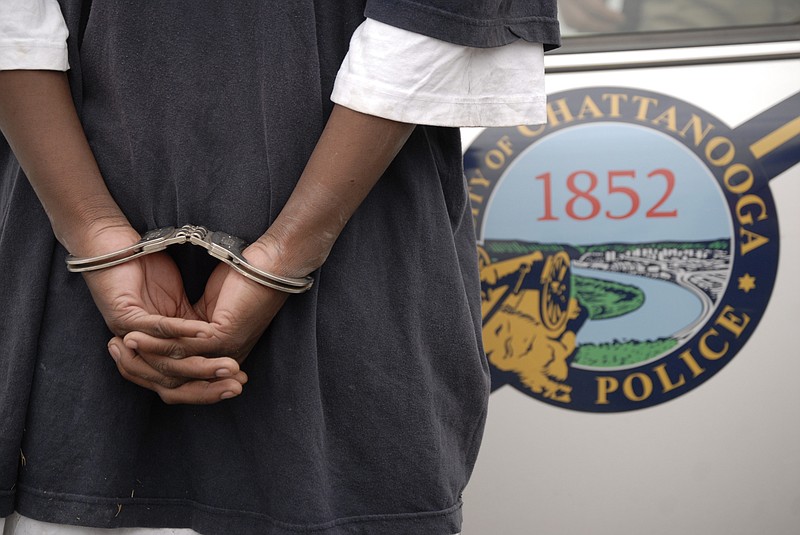A judge approved District Attorney General Neal Pinkston's request for a temporary gang injunction earlier last week in Criminal Court. This means the 31 men can be punished for violating the 11 activities that Pinkston laid out in his petition.
"The injunction is in effect, therefore the penalties are in effect," his spokeswoman, Melydia Clewell, wrote in an email. State law prohibits prosecutors from discussing pending cases any further, she added.
When he unveiled his plan in September, Pinkston said the gang injunction would give police officers another legal tool to halt routine troublemakers in two street gangs: The Grape Street Crips and the Gangster Disciples. An injunction is a court order that requires an entity to stop doing something, similar to a restraining order or a cease-and-desist letter. In this case, Pinkston's petition would levy a $50 fine and up to 30 days of jail time for any targeted men who violate 11 listed activities, including owning graffiti equipment, drinking alcohol, possessing guns and drugs, signaling the arrival of police, or hanging out with other accused gang members.
Defense attorneys have said the injunction would trample First Amendment rights to association, open the door to illegal searches, and widen the us-versus-them mentality that strains some relationships between minority communities and police officers. Though a temporary version is now in place, defense lawyers are still fighting against a permanent injunction, said attorney Chrissy Mincy, who has represented a handful of the 31 men so far.
Steelman based his decision on a Tennessee statute that governs the rules of civil procedure, Mincy said.
"In such proceeding," statute 29-3-105 says, "the court shall, upon the presentation of a bill or petition award a temporary writ of injunction."
Steelman's order will apply to everyone who has been served already, Mincy said. In a motion filed Dec. 14, Pinkston said 20 of the 31 men have been served with a copy of the petition and a notice to show up to court.
So far, proper service has been a prominent issue. Pinkston has argued that serving "managing agents" in each gang provides enough notice for all the men. Defense attorneys, meanwhile, have countered that prosecutors never proved their clients are in gangs, let alone hold leadership positions. From the time Pinkston filed the petition to the first court hearing on Oct. 3, the 31 men had a week to be served and report to court.
The discovery process has also sparked a string of debate. Both sides have the opportunity to "discover" certain facts about the other's case, often with written questions - known as interrogatories - and depositions. But when Pinkston said he planned to depose some of the 31 men, Mincy objected that prosecutors could use that information against her clients to incriminate them in unresolved criminal cases.
During Monday's hearing, she said, Steelman ruled that Pinkston cannot depose any of the men who have pending charges. During one deposition that already happened, one man invoked his Fifth Amendment right and declined to answer questions, she said.
"I think that's a very good ruling due to the constitutional considerations of the district attorney attempting to cross-examine people under oath in their office who have criminal charges," Mincy said. "We were happy with the judge's ruling."
The next scheduled court date is Jan. 10, 2017.
Contact staff writer Zack Peterson at zpeterson@timesfreepress.com or 423-757-6347. Follow on Twitter @zackpeterson918.

